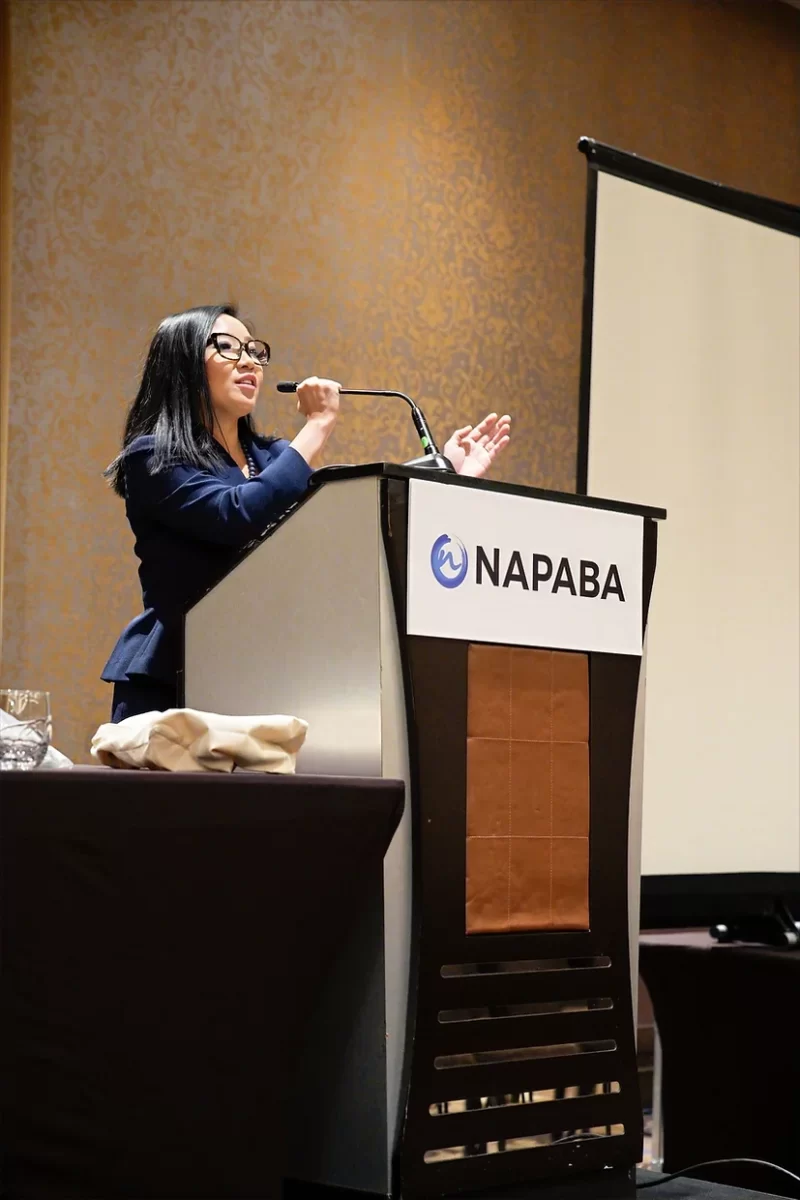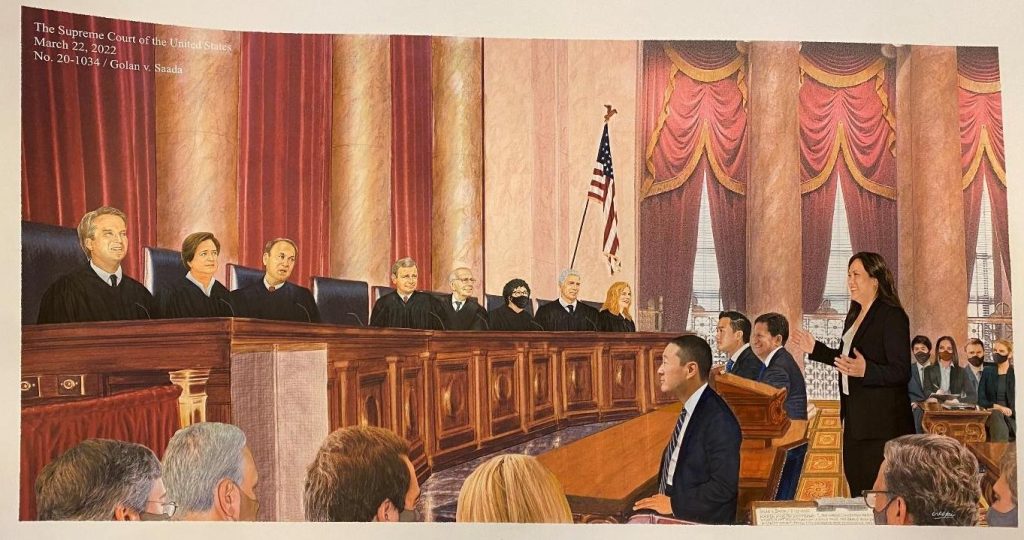 |
In recognition of her legal prowess, dedication to service, and entrepreneurial spirit, Beatrice Leong, a prominent Asian American and Pacific Islander (AAPI) woman solo practitioner, has been honored with the Best Under 40 award from the National Asian Pacific American Bar Association (NAPABA). Beatrice will receive the award on November 11th at the NAPABA Convention in Indianapolis, during the Gala on Saturday evening. The Asian American Bar Association of New York (AABANY) is thrilled to celebrate this outstanding achievement and applauds Beatrice’s unwavering commitment to the legal profession and her community.
Empathy Born from Experience
Beatrice was set on becoming a prosecutor since she was in Junior High school. She was married to her high school sweetheart, she had finished law school, and she had an offer to intern with the Queens District Attorney’s office.
The discovery of her then-husband’s infidelity threw a wrench in her plans and forced Beatrice on a different path. Her consultations with divorce attorneys were disheartening. She failed the bar exam. “I felt like I was dying,” she said, looking back on that time. Nevertheless, she took matters into her own hands. The same drive and passion for justice that made her want to prosecute wrongdoers pushed her to become a divorce lawyer, the kind that she wanted for herself, and one that her future clients could safely rely on.
From personal experience, Beatrice understands the emotional and often heart-wrenching aspects of divorce and family conflicts. This has equipped her with a profound empathy that she channels into her legal practice. She is a compassionate advocate who walks alongside her clients through the tumultuous process of divorce, offering pragmatic guidance with a deep understanding of the emotions that accompany such challenges.
Redefining Success as a Solo Practitioner and Entrepreneur
Beatrice started her career in divorce and family law at matrimonial and family law firms in both Queens and Manhattan, first at Plaine & Katz LLP and later at Parmet & Zhou LLC and Kleyman Law Firm. She started her own practice, the Law Office of Beatrice Leong, in 2021. As the only solo practitioner among this year’s Best Under 40 honorees, Beatrice’s remarkable journey is an inspiration to young lawyers. Reflecting on her career, Beatrice emphasized the importance, especially for young AAPI lawyers, to recognize the value of their work and not be afraid to carve their own path.
Leadership in the Legal Community
Beyond her exceptional legal practice, Beatrice is dedicated to serving the AAPI community by playing an active role in both AABANY and NAPABA. She currently serves as a Co-Vice President of Programs and Operations at AABANY and a Co-Chair of NAPABA’s Solo & Small Firm Network.
Through AABANY, Beatrice met other AAPI lawyers, rare in her field, and people who could relate to being mistaken by court officers as an interpreter, intern or a litigant, because they do not fit the traditional image of a lawyer. She says that she found “her community” through AABANY: the pro bono clients she advised through AABANY, fellow AAPI lawyers, and AAPI law students.
Beatrice recalls being described as a “natural leader” by her peers at AABANY after she joined. More and more, she dedicated her free time to fostering connections between the organization’s members, drawing from a deeply held conviction that strength comes from unity. Later, she joined NAPABA to promote AAPI representation on a national level.
Beatrice Leong’s journey is a testament to her unyielding dedication to her clients, her community, and the legal profession. Her personal understanding, professional excellence, and commitment to service make her a beacon of hope for those navigating the difficult waters of divorce and family law. Beatrice’s passion and expertise continue to inspire and make a profound impact, both in the legal world and the lives of those she serves.
Congratulations to Beatrice Leong on this well-deserved award and recognition! You can click here to learn more about the Best Under 40 award and read about other awardees.
Please join AABANY in congratulating all of the honorees at the 2023 NAPABA Convention.



